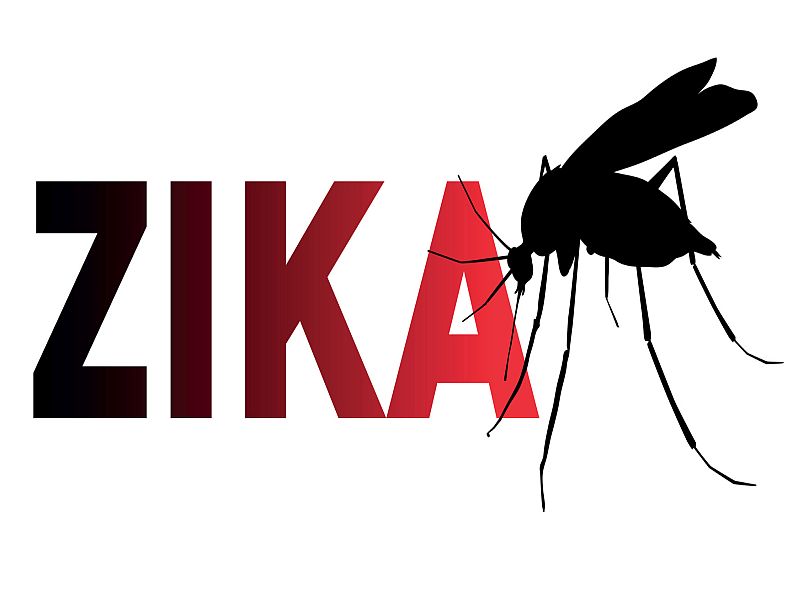

Zika-Bearing Mosquitoes More Widespread in U.S. Than Expected
Surveillance also caught an increase in bugs that transmit dengue and chikungunya virusesTuesday, June 20, 2017

TUESDAY, June 20, 2017 (HealthDay News) -- The latest buzz from federal health officials is that mosquitoes that can spread Zika, dengue and chikungunya viruses are in more counties in the southern United States than previously thought.
After a Zika outbreak in Florida last summer, researchers from the U.S. Centers for Disease Control and Prevention expanded mosquito-collection measures across the South.
The new study revealed a 21 percent increase in the number of counties with Zika-carrying mosquitoes (Aedes aegypti). There was also a 10 percent increase in counties with dengue-spreading mosquitoes (Aedes albopictus).
The results don't mean these mosquitoes are abundant or madly transmitting the viruses. But the "findings highlight the need for continued and improved mosquito surveillance," wrote the team led by Micah Hahn.
Hahn is with the CDC's division of vector-borne diseases in Fort Collins, Colo. He and his colleagues said state and local health departments should use this new information to beef up mosquito control efforts in advance of possible Zika, dengue or chikungunya outbreaks.
Dr. Robert Glatter, an emergency room physician at Lenox Hill Hospital in New York City, agreed that more surveillance is in order.
"The increase in the incidence of Aedes aegypti and Aedes albopictus species described in the report argues for greater surveillance for the detection of these species since they carry dangerous diseases including dengue as well as Zika," he said.
Areas that may need extra surveillance for Zika-carrying mosquitoes include states with established populations such as California, Arizona, New Mexico, Texas, Florida and the other Gulf Coast states, plus certain Mid-Atlantic states, the report said.
"Other areas of interest are urban areas that have repeated introductions of the mosquito such as Chicago, Illinois," the researchers noted.
Surveillance efforts should keep track of both types of mosquitoes, so researchers can see how their distribution changes in the coming years and decades.
The CDC conducted a mosquito survey in spring 2016. At the end of last year, the research team conducted a follow-up survey of mosquito control agencies, university researchers, and state and local health departments. That survey included Zika-bearing mosquito information from 38 new counties.
The total body of evidence now runs from 1995 to 2016.
Since 1995, the Zika-bearing mosquito has been documented in all states in the southern United States, with the most widespread county-level distributions in southern California, Arizona, Texas, Louisiana and Florida, the report said.
Noting that the mosquito thrives in subtropical and tropical climates, the researchers said low winter temperatures may keep them from spreading north. Although in the summer months, mosquitoes that can carry Zika can be found in most regions in the United States, the report said.
Additional counties with evidence of dengue-spreading mosquitoes are primarily in Kansas, Texas, Mississippi, Arkansas and North Carolina, according to the report.
Meanwhile, counties with both types of mosquito were located mostly in southern California, Arizona, Texas, Florida and Maryland, the study said.
The best way to protect yourself from Zika, dengue and chikungunya is to avoid being bitten by mosquitoes.
And, bug repellants are one way to avoid bites. "DEET is the most effective repellent against mosquitoes. A product containing 10 percent DEET can protect you for up to 90 minutes," Glatter said.
"Two alternative repellents, picaridin and lemon-eucalyptus oil, are also quite effective," he added.
The findings were published June 19 in the Journal of Medical Entomology.
SOURCE: U.S. Centers for Disease Control and Prevention, news release, June 20, 2017; Robert Glatter, M.D., emergency room physician, Lenox Hill Hospital, New York City
HealthDay
Copyright (c) 2017 HealthDay. All rights reserved.
News stories are written and provided by HealthDay and do not reflect federal policy, the views of MedlinePlus, the National Library of Medicine, the National Institutes of Health, or the U.S. Department of Health and Human Services.
- More Health News on
- Insect Bites and Stings
- Zika Virus



























.png)












No hay comentarios:
Publicar un comentario